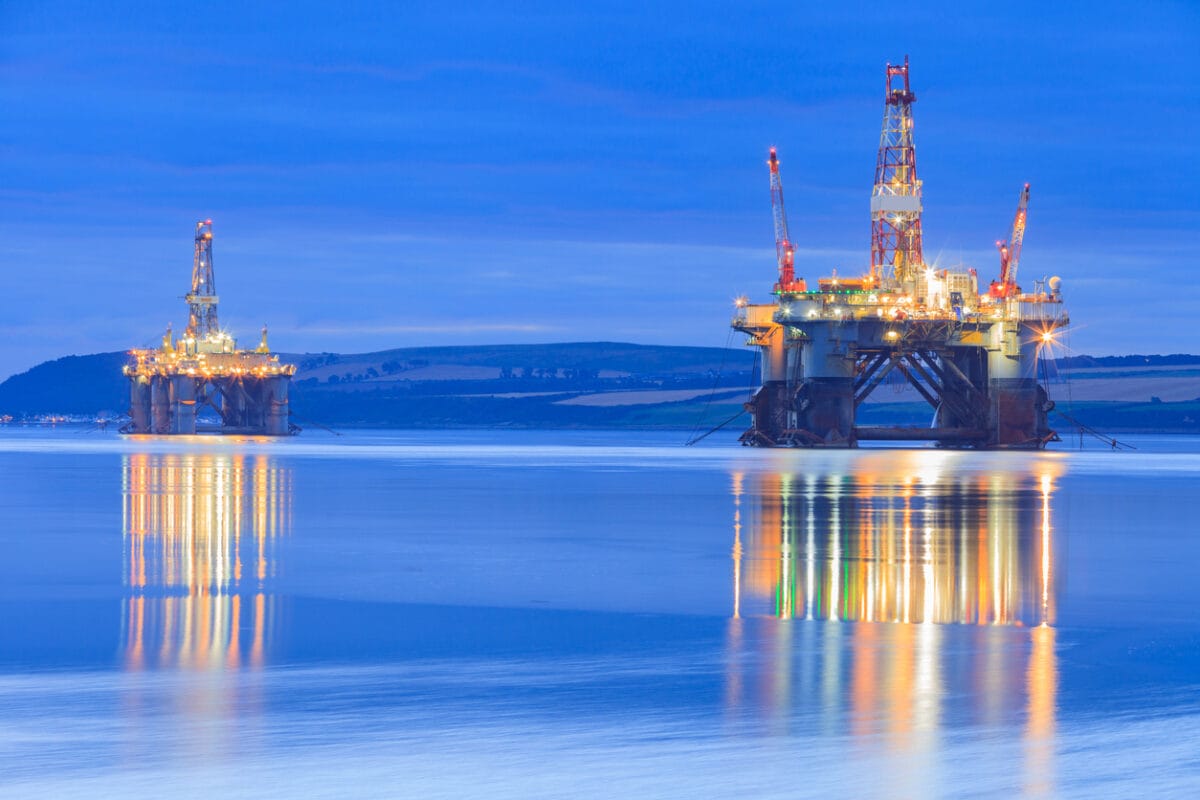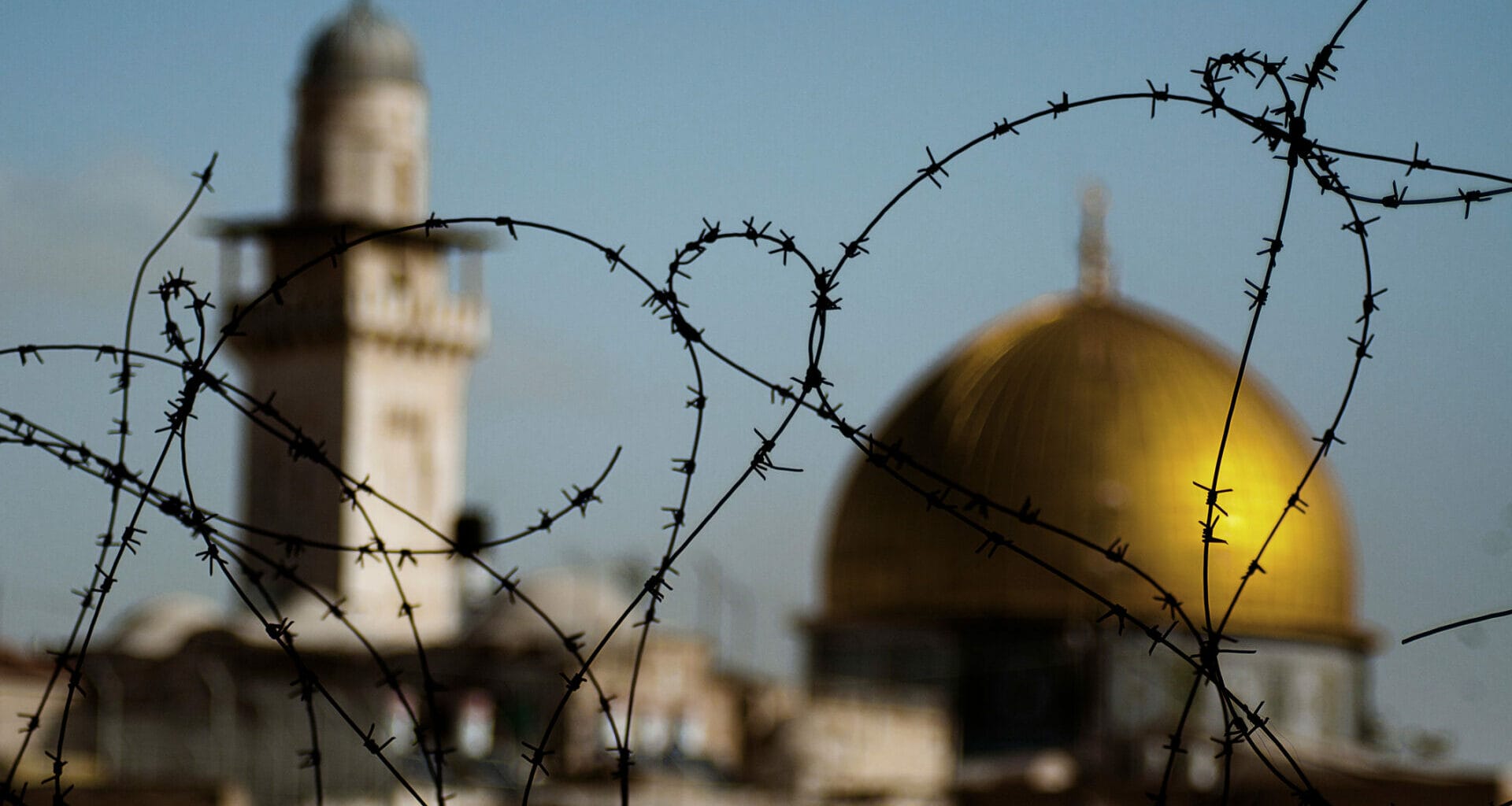A fossil fuel giant awarded new North Sea oil licences by the UK Government has links to an Israeli company which has been supplying fuel to the IDF.
Vehicles belonging to the Israel Defense Forces (IDF) can refuel at hundreds of petrol stations owned by Delek Israel, under a contract agreed in 2020.
Delek Israel is part-owned by Israeli energy conglomerate, Delek Group, which also owns the Aberdeen-headquartered oil company, Ithaca Energy. Delek describes Ithaca as its “operational arm” in the North Sea.
Ithaca was given three UK oil licences in October, despite existing UN concerns about its parent company’s involvement with illegal Israeli settlements in the occupied West Bank.
Ithaca paid out hundreds of millions of pounds in dividends to Delek last year, prompting concerns North Sea oil revenue is going to a firm which, due to its links to the IDF, is implicated in the “horrors” unfolding in Gaza.
Critics, including Amnesty International and senior opposition politicians, have called for Ithaca’s licences to be reviewed and potentially revoked in light of our findings.
The award of the oil licences to Ithaca was announced by the UK’s North Sea regulator weeks after the attacks on 7 October when Hamas killed around 1200 people, mostly Israeli civilians.
Over 30,000 Palestinians have now reportedly been killed by the Israeli military since the Hamas attacks which sparked the latest escalation of the conflict in Gaza. The conflict has threatened to spill out into a regional war in the last week after Israel and Iran launched direct attacks on each other.
Media in Israel reported in June 2020 that Delek Israel and another fuel company had won a tender run by the country’s Ministry of Defense (MoD) to provide refuelling services to the IDF and MoD.
The government’s handing out licences to a company engaged in supporting the expansion of Israeli settlements in the West Bank flies in the face of UN resolutions outlawing these settlements.
John McDonnell, Labour MP
The exact value of the contract is not known but reports suggest it is worth hundreds of millions of shekels (Israeli currency), which would equate to tens or potentially hundreds of millions of pounds.
The original contract between the MoD and Delek Israel was for an initial three years from 2020 to 2023, with the option for it to be extended for another two years, according to media reports and Delek’s 2020 annual financial report.
Subsequent annual reports do not confirm the extension, but the IDF’s website includes a page dedicated to the “complete list” of petrol stations where its vehicles can refuel. It includes a spreadsheet which lists over 200 Delek Israel petrol stations across the country which are part of the scheme.
The photo agency, Getty, published a photograph of an IDF hummer being refuelled at a petrol station bearing the Delek Israel logo near the border with Gaza on 19 November 2023, weeks after the Israeli offensive began.
The Ferret understands that the contract primarily allows commercial cars used by military personnel to refuel. While some all-terrain vehicles used in combat could refuel at Delek Israel’s petrol stations, heavier armoured vehicles like battle tanks do not.
The Delek Group currently owns around 25 per cent of Delek Israel, having sold a large amount of shares in late 2020 due to financial pressures. However, the contract to supply fuel to the IDF was signed while Delek Group was still the largest shareholder in Delek Israel.
Delek Group was among 112 companies named in a list produced by the UN Human Rights Council of companies whose activities in the occupied West Bank “raised particular human rights concerns”.
The West Bank – located on the west bank of the River Jordan near Jerusalem – has been occupied by Israel since 1967. Israeli settlements in the West Bank are considered illegal under international law.
Conflict between Israeli settlers and Palestinian populations has stretched back decades. But according to the NGO Human Rights Watch, settler violence against Palestinians has escalated since October 7 and the Israeli military has either taken part or failed to protect Palestinians from violent attacks in the West Bank.
The UN list – compiled after a fact-finding mission to the West Bank – included companies which it assessed were involved in activities in the occupied territories which “raised particular human rights concerns”.
Delek was one of the companies listed because it provided “services and utilities to support the maintenance of Israeli settlements” and was using natural resources in the occupied territories for “business purposes”. A new version of the list was published in June 2023 and Delek was still named as supporting the settlements.
Delek bought Ithaca Energy in 2017 and it has since grown into one of the biggest oil producers in the North Sea with nearly 600 staff.
Ithaca paid out £320m in dividends to shareholders in 2023 and wants to increase that to nearly £340m in 2024. Delek owns around 88 per cent of Ithaca shares, suggesting it would have been in line for around £280m in dividends payments from Ithaca in 2023.
According to research by think tank, Common Wealth, Ithaca is the ninth biggest oil and gas company in the North Sea with stakes in 83 licences in total.

The company holds a 20 per cent stake in the controversial Rosebank field, north west of Shetland, which was approved by the UK Government last year in the face of vocal opposition by climate scientists and campaigners.
Neil Cowan, the programme director for Amnesty International in Scotland, claimed that any North Sea oil licensee with “business links to Israel’s illegal settlements and the war crimes being perpetrated in Gaza should expect to lose their licence”.
Cowan added: “By supplying fuel lto the Israeli military while Israeli forces commit war crimes and possible genocide in Gaza, Delek is complicit in those acts as well as Israel’s ongoing system of apartheid against the Palestinians, of which the settlements are a key part.
“There must be consequences for anyone here in the UK who is actively implicating themselves in the horrors we’re watching unfold – from businesses to UK ministers and officials blatantly flouting their own rules over not exporting UK arms when there’s a clear risk of them being misused.”
Former Labour shadow chancellor, John McDonnell, told The Ferret if the UK Government is to have “any credibility on human rights these licences must be reviewed in light of the UN’s investigations”.
“The government’s handing out licences to a company engaged in supporting the expansion of Israeli settlements in the West Bank flies in the face of UN resolutions outlawing these settlements and gives a lie to the prime minister’s claims of upholding international law and human rights,” McDonnell claimed.
Ithaca, Delek, the UK Government’s energy department, the Israeli embassy in London and the IDF were all asked to comment but none responded.
On its website, Ithaca says it is committed to “do the right things in the right way” and that environmental, social and governance (ESG) considerations are “interwoven into our balanced business strategy”.
Ithaca has adopted the UN’s sustainable development goals, including to contribute to “peace, justice and strong institutions”.
As well as for its activities in the West Bank, Delek has come under fire in recent years for its plans to develop gas fields off the coast of the disputed territory of Western Sahara.
Western Sahara was annexed by Morocco in 1975 but its sovereignty there is disputed by the indigenous Sahrawi people.
Norway’s massive sovereign wealth fund – built largely on the back of oil revenues – announced it was divesting from Delek in December because its activities in Western Sahara were “a serious violation” of “basic ethical norms”.
Meanwhile, Norway’s state-run oil company, Equinor, is partnering with Ithaca on the Rosebank field, which Equinor has an 80 per cent stake in, a fact that has drawn growing criticism from both campaigners and politicians in the Scandinavian country.
Cover image thanks to iStock/Wirestock













